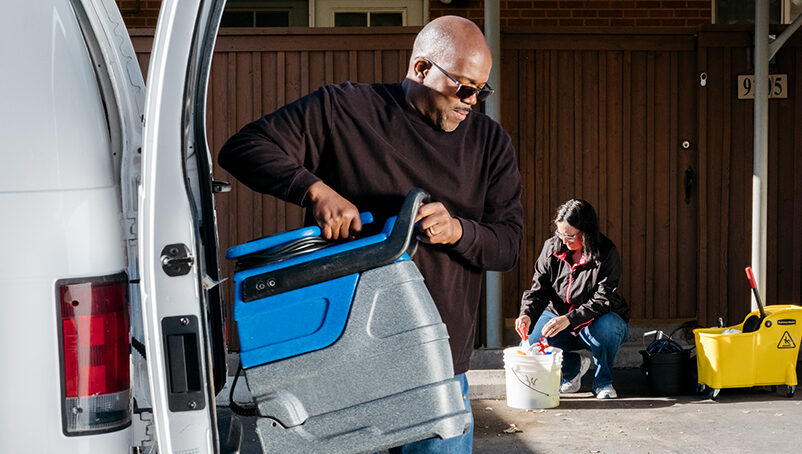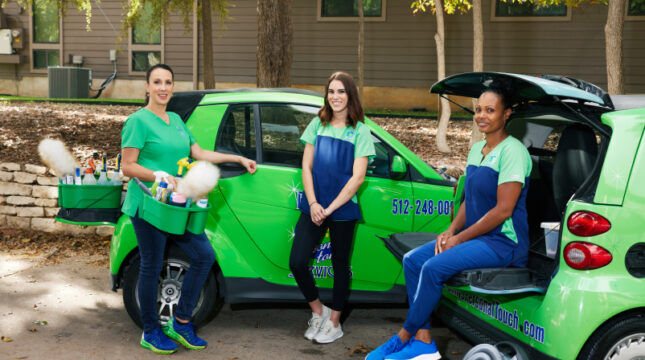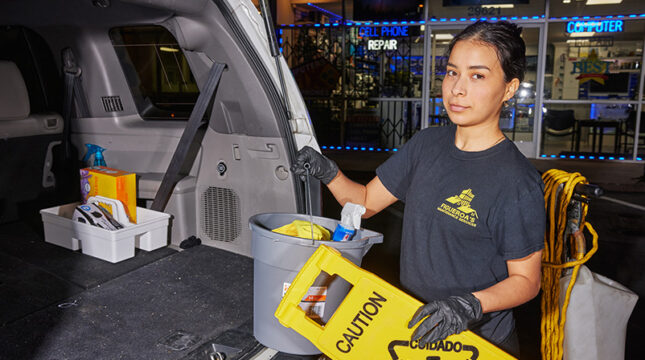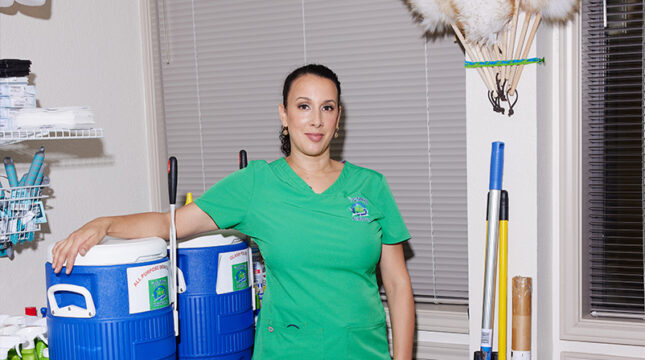1. Property damage
It happens. You’re dusting a client’s home and accidentally knock over a crystal vase. Or you pick up a mop to clean the floor. The handle knocks a piece of artwork off the wall, and the glass in the frame shatters. Even when you’re careful, accidents can happen.
To help prevent property damage when you’re on the job, it’s important to train your staff on how to complete each task (e.g., dusting, mopping, cleaning windows, etc.). Proper training and techniques help minimize the risk of damage to a client’s property.
If your clients have rare, valuable and irreplaceable items, ask them to secure high-value pieces before you arrive. If they’re put away, they can’t get broken.
Because you never know when an accident might happen, having general liability insurance can give you peace of mind. It’s one of the most common types of coverage and can help you pay for expenses after an accident.
Learn more about general liability claims at NEXT.
2. Slip-and-fall injuries
Wet floors, power cords and buckets filled with water and mops increase the chance someone will slip and fall. But of course, you need these supplies to properly clean someone’s home or business.
It’s important to clean up spills quickly and put up signage when areas are wet so that people know to avoid them or use extra caution when walking by.
It’s also critical to keep the space uncluttered.
Don’t leave mops, brooms or other cleaning equipment lying around where people can trip on them. And be sure to secure power cords when you’re using equipment such as a vacuum or steam cleaner to clean carpets or other areas of your client’s homes or offices.
Besides covering damage to someone else’s property, general liability covers injuries to people who are not your employees. To help cover costs from employee injuries, you’ll need workers’ compensation coverage.
3. Failing to secure property
When you clean people’s homes and offices, it’s not unusual for them to give you a key or passcode so you can do your job even when they’re not around. But having access to other people’s property can be risky.
If you don’t secure it when you’re finished working or one of your employees accesses the premises when they’re not supposed to, you could be held liable for theft or damage that occurs.
It’s important to store keys and passcodes in a secure place so you don’t lose them. If you have too many passcodes to memorize, consider a password-protected spreadsheet to prevent unauthorized access. Be sure to reset alarms and lock doors when you leave. It’s also a good idea to conduct background checks on employees before they join your crew.
4. Injuries or illness from hazardous materials
Many cleaning solutions can irritate a person’s eyes, skin and respiratory tract, leading to injuries that range from minor to severe. Here are some tips to help prevent employees and clients from getting hurt or sick.
- If you’re using chemicals that can be irritating, make sure the area is well-ventilated.
- Don’t mix different types of cleaning solutions together.
- Make sure employees use proper personal protective equipment (PPE), including gloves, masks and eye protection when working with chemicals.
- If the risk of injury is high, consider sealing off the area or asking people to leave until you’re finished.
5. Theft or loss of equipment
Replacing stolen equipment can be costly. That’s why you store your supplies and equipment in a secure location when you’re not working.
But what happens when you need to take those items from client to client during the workday? Or you stop to get gas, and someone takes off with the steam cleaner from the back of your truck when you’re not looking?
The best way to help prevent theft is to store your equipment inside your vehicle where it’s locked. If that’s not possible, make sure you or an employee are with it at all times.
Remember, theft doesn’t just involve strangers. It can happen with people you know too. Conduct employee background checks and work only with people you trust to reduce the risk of employee theft.
Unfortunately, theft claims often get denied because general liability insurance isn’t enough to cover you. You also need a tools and equipment add-on.






